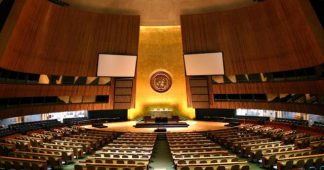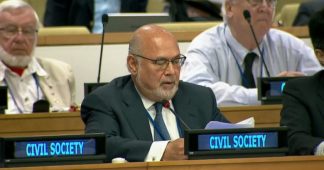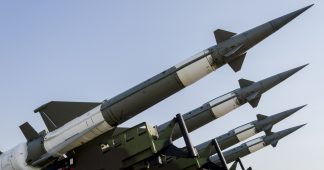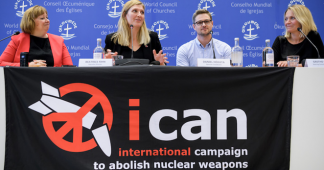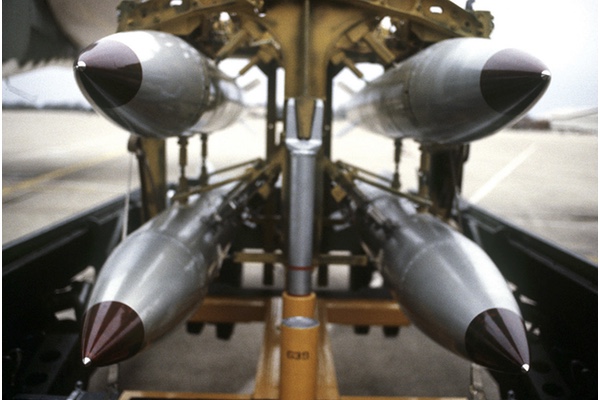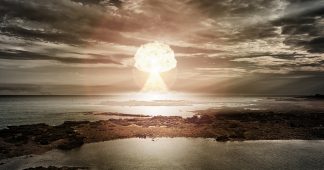October 10, 2017
ICAN statement to the First Committee of the UN General Assembly, 10 October 2017
We meet at a moment of great global tension, when fiery rhetoric could all too easily lead us, inexorably, to unspeakable horror. A quarter of a century after the end of the cold war, the spectre of nuclear conflict looms large once more.
Every nation that promotes nuclear weapons as a legitimate, necessary source of security is contributing to this unparalleled threat. And every nation – whether nuclear-armed or nuclear-free – has the power and the duty to pull us back from the brink of catastrophe.
Nuclear weapons threaten the very survival of humanity and our entire living planet. Their effects transcend national boundaries and span generations. They are immoral, illegitimate and now – at long last – illegal.
The Treaty on the Prohibition of Nuclear Weapons offers a powerful alternative to a world in which threats of mass destruction are allowed to prevail. Its adoption on 7 July – by a great majority of UN member states – brings an end to two decades of deadlock in multilateral disarmament negotiations.
It sets out a pathway forward at a time of alarming crisis. If ever there were a moment for nations to declare their unequivocal opposition to nuclear weapons, that moment is now.
We applaud those that have already signed and ratified this historic accord, and we urge all others to follow their lead. Of course, some – for now – will continue to resist it, asserting that nuclear weapons, for them, are an acceptable means of defence.
Ground-breaking steps forward never begin with unanimous agreement. However, we are confident that, over time, attitudes will change, as the norms enshrined in this treaty take hold.
And let us be clear: It is not the ban that divides us; nuclear weapons divide us. These instruments of terror are tearing apart our global community, at a time when international cooperation to address a multitude of great challenges is more important than ever.
ICAN strongly condemns all activities that the ban treaty prohibits. These include, of course, nuclear tests; the ongoing modernization of nuclear arsenals; and explicit threats – as we have heard in recent weeks – to use these abhorrent devices to obliterate entire civilian populations.
We urge those few dozen nations here that support nuclear weapons to reconsider their long-held positions – to chart a new course for the sake of humanity. Dismissing meaningful disarmament steps in order to preserve the precarious status quo is reckless and dangerous. Our luck, sooner or later, will certainly run out.
The Treaty on the Prohibition of Nuclear Weapons fills a major gap in international law. It completes the triad of treaty-based prohibitions on weapons of mass destruction. It offers hope for a safer, saner world.
We wish to thank all those delegations that have congratulated us on our receipt of this year’s Nobel Peace Prize. We hope that this prestigious award will shine a spotlight on the new UN treaty and add momentum to our collective efforts to secure its early entry into force.
The prize is a tribute, in particular, to the tireless efforts of survivors of the atomic bombings of Hiroshima and Nagasaki, and of nuclear testing around the world. Their testimonies and their advocacy were instrumental in bringing this landmark agreement into being.
We implore all nations to join the treaty without delay, lest anyone else ever suffer as they have.
Delivered by Tim Wright, Asia-Pacific Director of ICAN
Photo: ICAN representatives Ray Acheson, Beatrice Fihn and Tim Wright meet with the UN Secretary-General, Antonio Guterres, on 10 October.
